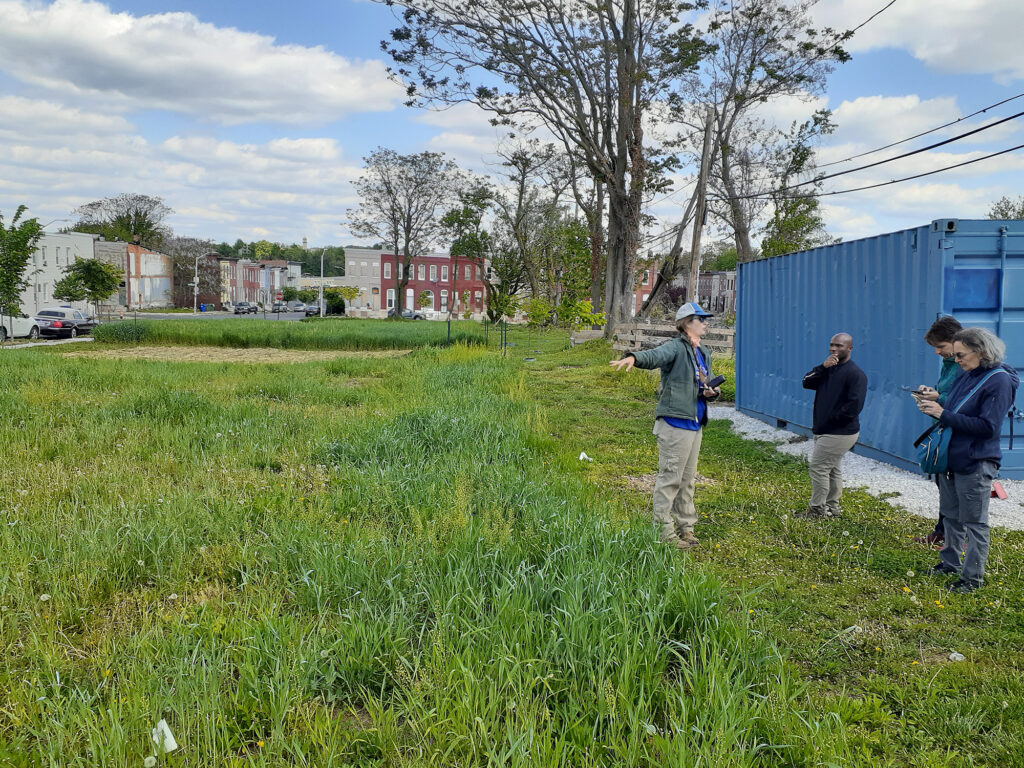
Why study vegetation, soils, and ecosystems?
Plants, from large trees to grasses, reduce the impact of climate change and absorb carbon dioxide from the atmosphere. By absorbing stormwater, providing shade, and cooling the air, they make neighborhoods more pleasant and livable. Plants rely on the soil, which is the foundation of all life on land. Healthy soil is full of organisms that build fertility, but unfortunately urban soils are often degraded. Studying plants, soil, and the relationships between them (such as the movement of water and nutrients) allows us to find effective strategies for greening.
How do the issues you study show up in Baltimore?
Like many cities, Baltimore is investing heavily in tree planting as a strategy to address climate change and stormwater runoff. Unfortunately, between 12-34% of trees die in the first year, adding cost while slowing progress toward the goal. Research to match tree species with soil conditions can guide Baltimore’s investment in tree planting. When all is going well, the trees and their soils form an ecosystem that more effectively supports the health of the soil, the trees, and the area they are planted.
Guiding Questions for Research
- What conditions are necessary to support healthy plants and soils that can best reduce extreme heat, flooding, and CO2 emissions, while also improving air and water quality?
- Across different land use types, how does soil health affect tree growth and water infiltration?
- How can we represent urban vegetation and soils in climate, water cycling, and air quality models?
Sample Project
The team will sample soils near these flux towers, and will learn about soil texture, depth, and water infiltration. They will learn about how well soils hold moisture and how this correlates with plant growth. The sampling is done by pushing a hollow tube into the ground. When the tube is removed, it is holding a cross-section of the soil approximately a foot deep and an inch in diameter.
Team Co-Leads
- Meghan Avolio, Johns Hopkins University
- Peter Groffman, Cary Institute
- Dan Ricciuto, Oak Ridge National Laboratory

